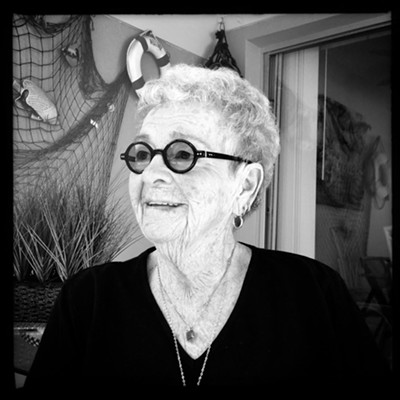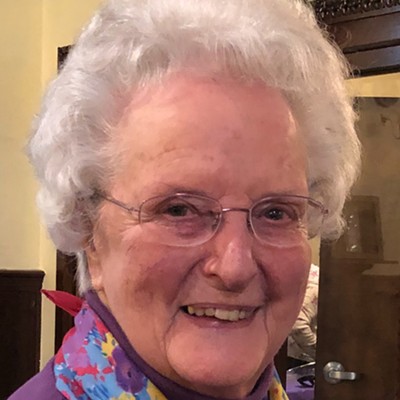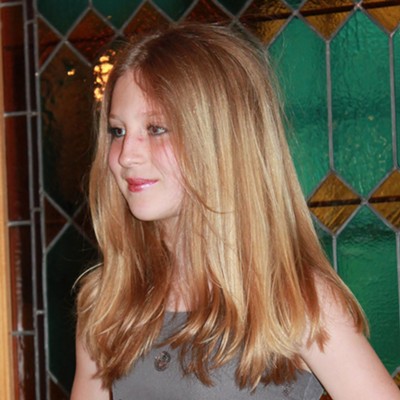My son Henry and I were waiting in the Costco checkout line, having loaded up on paper products, laundry detergent and fruit that had probably spent more time in a refrigerated compartment than growing on a tree. Two Asian children in the cart next to ours eyed Henry and the hunk of muffin he was clutching in his 5-year old fist. One of them pointed at him and said something to a man I assumed was her father in a language other than English.
Henry's brow furrowed, then he jerked his thumb at the family and announced loudly enough for everyone within 10 feet of us to hear: "They're talking in Chinese. They're not from here."
At this point, any parent might have felt a little embarrassed. I was mortified. I'm Korean. Henry is biracial — part Asian and part Caucasian. In my mind, Asians living in one of the whitest states in the union share a common bond, regardless of background or experience. As soon as Henry spoke, I felt the invisible string of our ethnic solidarity vibrate with shame from the carelessness of his words.
I know how carelessness stings. I was 6 months old when my American parents adopted me and brought me home to the states; my sister arrived four years later. Our family moved to Vermont when I was 9 and she was 6. For years, the two of us were the epicenter of diversity in the Northeast Kingdom. Our ignorance about the land of our birth didn't matter. We came to the U.S. as blank slates, but people believed Asian culture was in our blood.
While our parents wondered how they could help us integrate with our peers, and tried to understand why we weren't more interested in learning about our birth culture, we were being called upon to answer serious playground questions: "How come you don't talk Chinese?" "Is there dog meat in egg rolls?" "What makes your eyes go slanted like that?"
For me, growing up as a foreign-born adoptee in Vermont in the 1980s was to grow up in limbo. I was an exile from a faraway land I didn't remember, a land I cared nothing about. I eschewed any and all things Korean in favor of assimilation. Spiral permanent? Check. Blue eyeshadow? Check. Jelly shoes? Check. My blond-haired, blue-eyed mother bluntly told me that I looked ridiculous, but I tossed a frizzy ringlet over my shoulder and scoffed. I was wearing what everybody else was wearing; I was acting the way everybody else was acting. I was just like everyone else.
It took years at college, and many more fashion faux pas, before I came to reconcile, and eventually embrace, my whole self. I sought to experience Korean culture and learn more about my heritage. I married, not the "nice Asian boy" my Irish Catholic mother had dreamed of — truly, what were the odds of my meeting one of those in Vermont? — but a nice Irish Catholic boy, instead. Together, he and I have produced three beautiful, biracial kids.
We've tried to raise our children in a socially liberal, quasi-educated manner. We talk about skin color at home, about civil rights, women's rights and the importance of self-expression. We read multicultural children's books, and we celebrate our Korean heritage by practicing tae kwon do as a family. A map of the world hangs on our refrigerator, and even if it's half covered with children's artwork, ticket stubs and school notices, it is there, and we reference it often. Between our efforts and my genes, I was convinced that my kids would grow up to be more racially and culturally sensitive than the average Jane.
So it was a shock when Henry blurted out something that sounded, to me, like an insult. "You're not from around here" is a phrase I heard often as a child. It still rankles.
I didn't apologize for my son's rudeness. I wish I had. Instead, I smiled weakly at the family before lecturing Henry about Asian stereotypes and the importance of respecting other cultures. He nodded his understanding and acted chastened.
On the drive home, as I was mentally berating myself for poor parenting, I recalled how Henry's preschool class had spent weeks preparing for the Chinese New Year, how they had made a fantastic papier-mâché dragon and drawn Chinese symbols and practiced saying Chinese words. Only then did it occur to me that maybe I had misinterpreted the situation. Maybe Henry had just been making an honest observation, trying to connect what he saw to what he'd learned in school.
It was a teachable moment — for me. I realized that I had reacted so strongly not because Henry had made a xenophobic remark, but because of my own emotional baggage. And that's something that my kids, thankfully, don't have to carry.










Comments
Comments are closed.
From 2014-2020, Seven Days allowed readers to comment on all stories posted on our website. While we've appreciated the suggestions and insights, right now Seven Days is prioritizing our core mission — producing high-quality, responsible local journalism — over moderating online debates between readers.
To criticize, correct or praise our reporting, please send us a letter to the editor or send us a tip. We’ll check it out and report the results.
Online comments may return when we have better tech tools for managing them. Thanks for reading.